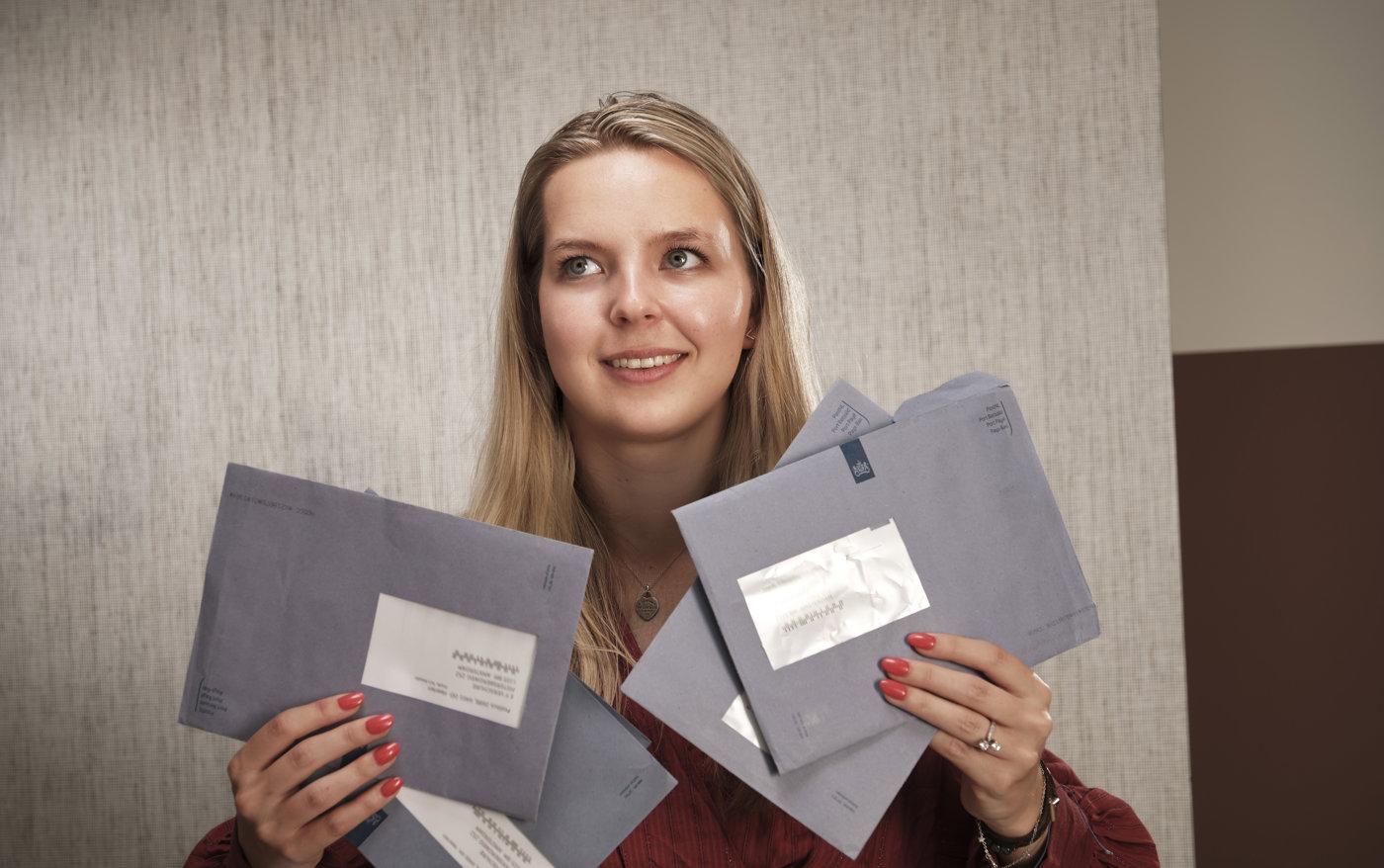How do you deal with work and money for now and later? Do you live by the day or do you purposefully plan your financial future? And do you arrange 'later' yourself, or are you a member of a pension fund?
In addition to her master's degree, Emma Verschure runs her own business as a tax consultant.
Emma Verschure (23)
Profession: Master's student and tax consultant
Weekly working hours: About 24 hours
Income: Last year 20,000 euros profit
Savings: More than 40,000 euros
Pension arranged? Not yet
What exactly do you do?
“I'm studying for a master's degree in tax law and I also work independently as a tax consultant. I mainly help female freelancers with their accounting and tax assessments. It's quite challenging to combine my studies with my business, because both take quite a lot of time."
How many hours do you work?
"It varies every week. I think I average about 24 hours. In a month with VAT returns and income tax, it's a lot more, but I can never exceed 40 hours anyway, because I simply don't have that time. Ultimately, I want to do this full-time, but not in its current form. I'm very ambitious and want to enter the legal profession. I'd like to set up a company where entrepreneurs can go for legal assistance, as well as their accounting and tax returns. A fixed point of contact for all things that, as an entrepreneur, you don't actually want to deal with. It appeals to me."
How much do you earn now?
"Last year, I made a profit of 20,000 euros and had a turnover of 35,000 euros. I very consciously made all kinds of investments in December, including in courses, so I had to pay less tax. This year, my goal is a turnover 50,000 euros, of which 35,000 euros profit."
Are you happy with that?
"Certainly, I earn a lot more than friends and fellow students. I don't worry too much about what comes in. I'm very serious about my work, but because I'm still a student, I don't necessarily have to take it super seriously. I mean: if I don't meet my turnover target, there's no stress. My parents can always help out if I'm really struggling. They also pay my study costs and a large part of my health care costs. I really appreciate that. We all went skiing at Christmas and they paid for that holiday in full, right up to the PCR test. We wouldn't be able to afford such a luxurious holiday ourselves, so we're very lucky in that respect."
